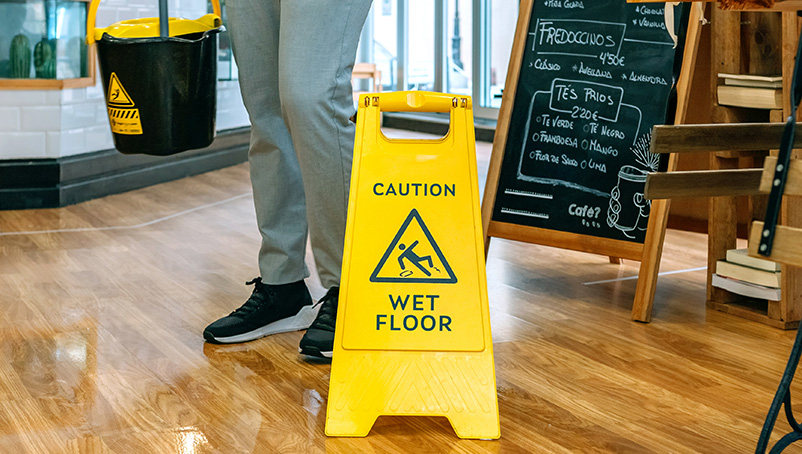What is reputational risk for small businesses?
Reputational risk is the potential for damage to a business’s reputation due to specific events, actions or failures. It’s the threat that something could damage the trust, credibility or image of a business, potentially leading to financial loss or legal problems.
Here are some factors that can increase reputational risk for a business:
- Poor customer service. Negative customer experiences can quickly lead to bad reviews and word-of-mouth, damaging a company’s reputation.
- Negative online reviews. A surge of negative reviews on social media or review platforms can tarnish a business’s image and deter potential customers.
- Product failures. Recalls or consistent issues with product quality can erode consumer confidence and loyalty.
- Data breaches. A breach of customer data can compromise privacy and erode trust in a business’s ability to protect sensitive information.
- Employee misconduct. Ethical violations or illegal activities by employees can reflect negatively on the company’s values and culture.
- Negative press or social media exposure. Unfavorable media coverage or viral negative social media posts can spread rapidly, impacting a business’s reputation almost instantly.
When the risk escalates, it turns into reputational harm — the actual outcome when that risk materializes. Reputational harm is the negative impact that has already happened, such as lost business opportunities, diminished customer trust or public backlash due to an event.
The consequences of reputational damage
Reputational harm can have severe consequences for small businesses. Here are some of the potential negative impacts:
- Reduced customer trust and support. Damaged trust can lead to customers avoiding your business, resulting in decreased sales and revenue.
- Difficulty attracting new customers. A tarnished reputation can make it harder to acquire new customers, hindering growth and expansion.
- Difficulties attracting investments and business partners. A damaged reputation can make it challenging to secure funding or form partnerships.
- Damage to employee morale. Negative publicity can negatively impact employee morale and job satisfaction, leading to increased turnover and decreased retention.
- Hiring difficulties. A negative reputation can deter top talent from joining the company.
- Legal issues. Defamation can lead to significant lawsuit costs and time-consuming legal battles.
- Long-term financial impact. Reputational harm can have lasting consequences, affecting a business’s profitability and ability to recover and thrive in the long term.
3 types of insurance to help protect you from reputational risk
Reputational harm can be a significant setback for a business, potentially erasing years of trust and loyalty built with customers. It’s comforting to know that your business has financial protection in the event of a reputational crisis, providing peace of mind for both owners and employees.
Many small businesses use general liability insurance and professional liability insurance as their main coverages. Both can help protect you from reputational damage.
- General liability insurance can help provide protection against harm that may arise from claims of slander or libel.
- Professional liability insurance (also called errors and omissions insurance, or E&O) can help if your erroneous professional advice or services results in a customer losing money.
- Directors and officers (D&O) insurance can protect your company’s executives and board members from actions that could hurt the company’s reputation.
These policies typically come into effect during covered incidents, such as legal proceedings or public relations crises. So, in a heated moment, you can focus on what’s important — running your business.
Reputational risk management strategies
If you minimize your reputational risks, you reduce your chances of reputational harm. Here are some effective approaches:
- Monitor online reputation. Keep track of online mentions and reviews. Respond promptly to negative feedback in a professional and courteous manner.
- Develop a crisis communication plan. Be prepared to respond effectively to crises. Have a plan in place for communicating with stakeholders, media and the public during difficult times.
- Train employees on ethics and conduct. Ensure employees understand the company’s values and code of conduct. Provide training on ethical decision-making and professional behavior.
- Clear communication policies. Establishing clear guidelines on what employees can say publicly about the company and other businesses.
- Protect customer data. Implement robust cybersecurity measures to safeguard customer data. Regularly update software and systems to prevent breaches.
- Build strong relationships with your community. Cultivate positive relationships with customers, suppliers and other stakeholders. Address concerns promptly and transparently.
- Conduct regular risk assessments. Identify potential risks to your business’s reputation and develop strategies to mitigate them.
- Seek legal advice. Consult with legal counsel to understand your legal obligations and rights regarding defamation and other reputational issues. You can also conduct regular reviews of marketing materials, public statements and social media posts to help avoid the accidental spread of potentially defamatory content.
- Public relations training. Getting trained by public relations teams can similarly help you avoid slander. And in the event of reputational harm, their crisis management team can help handle communications to avoid making defamatory statements.
By implementing these risk management strategies, small businesses can significantly reduce their exposure to reputational harm and protect their brand’s integrity.









